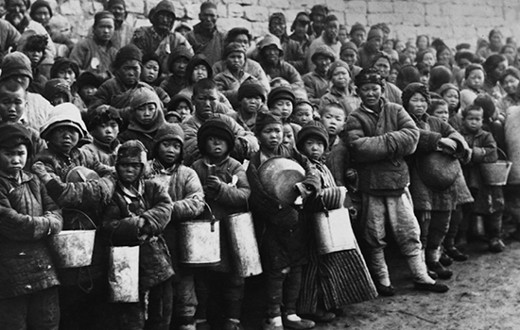As a boy in Honduras, Reynaldo Martorell lived on a banana plantation, where his father earned a fair living. He often walked along the outskirts of the grounds, noting the difference between living conditions on the plantation and in the villages abutting it. The homes outside the plantation lacked running water and electricity. Malnutrition was chronic, and children were stunted. Though Martorell's family was not rich, they were better off than people who lived in the villages.
Since then, he has devoted his life's work to calling attention to the interplay between maternal and child nutrition. He was one of the first investigators to trace the long-term impact of improved childhood nutrition on health and development. In Guatemala, he studied a group of adults 40 years after they had participated in a nutrition trial as young children. Martorell connected their nutrition as infants to a range of outcomes as adults, including body size, cardiovascular disease risk, intellectual functioning, and wages. Better nutrition as children resulted in better outcomes as adults.

Reynaldo Martorell
Today, Martorell is the Robert W. Woodruff Professor of International Nutrition and former chair of the Hubert Department of Global Health at Rollins. His honors include the Carlos Slim Award for lifetime achievement in research benefitting Latin American populations and election to the Institute of Medicine. He also serves as an adviser to UNICEF, the World Health Organization, and the World Bank. Martorell continues to study the effects of childhood nutrition on adults in Guatemala in collaboration with global health professor Aryeh Stein and has undertaken projects in Mexico, Vietnam, India, and China.
The Great Chinese Famine of 1959–1961 may have been the worst in human history, killing an estimated 16 million to 40 million people. It resulted from Mao Tse-tung's "Great Leap Forward" campaign, Martorelli explains. Mao wanted to quickly industrialize China, so he forced people living in rural provinces into communes and put his attention and resources into massive industrialization. Soon there were sharp declines in crop production, and what little food that was produced was shipped to cities. There was little to eat for several years, and millions of people starved to death.
"I have researched the long-term consequences of poor nutrition in early life, particularly in utero and the first two years (often called the first 1,000 days) for a long time," says Martorell, the Robert W. Woodruff Professor of International Nutrition at Rollins School of Public Health. His early work showed that babies who were malnourished in utero and during their first two years of life were likely to be stunted and have lower IQs. Studying the effects of the famine was an extension of his interests.
"Starving is a horrible and senseless way to die, but I've often wondered about the millions of children who survived the famine. How are they faring today?" Martorell began a series of studies with colleagues in China and with Cheng Huang, who was a postdoc at Emory who is now an economist with at George Washington University. Huang developed the analytical model that they used in these studies.
Findings point to the importance of good nutrition in early life for future health and well-being. "We hope that China and other societies across the world will take this to heart and invest in women and children," Martorell says. For example, Chinese women are still affected by iron-deficiency anemia and other micronutrient deficiencies, especially zinc. "Improving programs to distribute these supplements should be a top item on China's public health to-do list."

